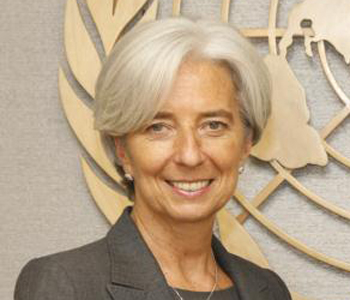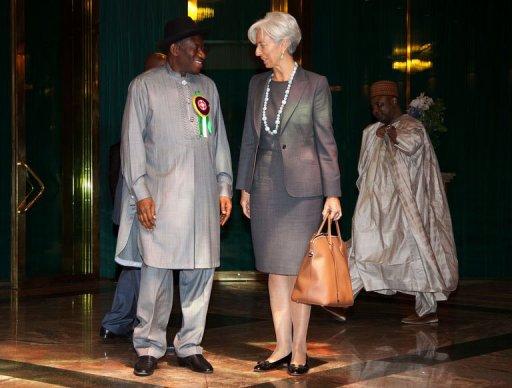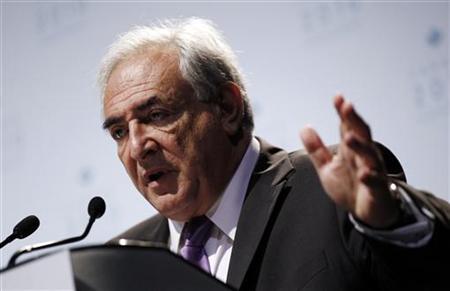The sovereign wealth funds, quest for effective infrastructure funding mechanisms in Nigeria
For countries such as Nigeria dependent on natural resources as dominant sources of earning foreign currencies, Sovereign Wealth Funds, represent meaningful economic avenues to diversity their economies.
In other words, the ability to put the incomes earned through natural resources such as crude oil into other viable income earning mechanisms, represent conscious attempts at deriving income from such avenues.
In its most classical sense, a Sovereign Wealth Fund is a pool of money derived from a country’s reserve. The reserve is then set aside for investment purposes that will benefit the economy and citizens of the country.
The funding for a Sovereign Wealth Fund come from Central Bank reserves that accumulate as result of budget and trade surpluses, excess revenue generated from the export of natural resources and in the case of Nigeria, the funding will basically come from our external reserves, which are income generated from crude oil exports.
These government investment funds, funded by foreign currency reserves are managed separately from official currency reserves. The primary reasons for sovereign wealth funds are to manage these pools of money for profit, rather than have the funds sit in bank vaults or savings deposits, where they earn minimal returns or no returns.
Estimates put the total funds under management by sovereign wealth funds among the top 50 countries at US$9.00 trillion at the end of 2010.
The International Monetary Fund (IMF) estimates that these funds will reach US$12.00 trillion by the end of 2012. This dwarfed the US$2.00 trillion under management by hedge funds world-wide at the end of 2010, but is significantly surpassed by the US$60.00 trillion managed by institutional investors such as pension funds and endowments world-wide.
Countries such as the United Arab Emirate (UAE) that rely on oil exports for its wealth created sovereign wealth funds to enable the economy diversify by investing in other types of assets that can act as shields against an oil related risk, market shock, or implosion.
The economic argument for diversification comes from the fact that crude oil is a cyclical commodity, subject to market forces such as supply and demand. When demand is on the rise as has been witnessed over the past decade and half due to the expanding economies of such countries as China, India, Brazil, etc. the price of crude oil will traditionally be on the upswing.
It is also possible for supply to rise or shrink due to either technological innovation, substitution of oil as the dominant source of energy, increase in quantity of oil consumed world-wide, reduction in demand levels, and depletion of total country supply levels. Further, crude oil is actually a finite commodity and will eventually run out or at its minimum, continue to dwindle in quantity.
All sovereign wealth funds are not the same. There are four types of distinguishable sovereign wealth funds.
These are international reserves, which are funds a country holds for use by its treasury or finance ministry and central bank. Public pension funds hold funds that states owe or promise their citizens. State owned enterprises such as the Nigerian National Petroleum Corporation are corporations fully owned by the state. There are some other corporations partially owned by the government.
The fourth form is the sovereign wealth fund itself. Managers of public pension funds traditionally keep low exposure to foreign assets. State owned enterprises actively participate in the ownership of both local and international assets, including investments in affiliated or related foreign firms. Sovereign wealth fund managers on the other hand seek high returns because they aim to increase the country’s wealth, hence they engage in higher risks in the investment spheres.
Sovereign wealth funds invest in whatever they wish. There are no systematic or generally accepted limits on what these funds can or cannot invest in. Even in their management, large investment houses such as Goldman Sachs are sometimes recruited as co-managers or advisers to the funds. Some are purely managed by the core of professional staff, recruited and retained by the funds.
There are no meaningful data to conclusively state that because a sovereign wealth fund is managed by such companies as Goldman Sachs or other large investment houses, they will experience meaningful returns on their assets or investments.
The Abu Dhabi Investment Authority (ADAI), the United Arab Emirates sovereign wealth investment vehicle, with about US$1.00 trillion under management is the world’s largest sovereign wealth fund. Because sovereign wealth funds in pursuit of high returns traditionally pursue investable assets in such advanced and properly regulated markets such as the United States and the United Kingdom, they easily incur local public outcries from small investors, politicians, and the consuming public in these countries.
For one thing, some of the largest sovereign wealth funds are owned by governments that are not necessarily democratic, prone to corruptions at the highest governmental levels, and have markets that are grossly inefficient or poorly managed.
In 2005, Dubai Port World, a UAE government owned company stirred controversy in the United States when it purchased a British owned shipping company, thereby gaining control over some of US sea ports, such as the Baltimore, Maryland Port.
The uproar in the United States was borne out of the concerns that investments and or ownership of seaports and their management and or operations are businesses run by private corporations. Even though Dubai Ports World is a government owned company not a sovereign wealth fund, the move forced US Senators to questioned the motives of such corporations, especially where their business engagements are mostly carried out secretly and they do not respond to the prudent regulatory mechanisms such as full disclosures in their business transactions, required from private public corporations Chinese sovereign wealth fund investment in late 2007 in leading US financial institutions also drew outrage from the US public because the fund, controlled by government was making major investments into traditionally non-government based businesses.
Venturing out of mundane investments such as US treasury bonds and various government debts instruments also expose these government owned investment vehicles to risks that have not been traditionally associated with conservative investments.
Temasek Holdings, a Singapore government owned investment vehicle invested nearly 40 percent of its portfolio in the financial sector in 2007, at the beginning of the global financial bubble. By 2008, when the bubbles became well pronounced, the portfolio also went down, while investments into treasury bonds remained relatively safe.
While sovereign wealth funds represent a rapidly expanding source for investable capital, there is no magic bullet or any evidence in investment banking that they are more lucrative to the owning governments than other sources of funds. In the 1980s for example, Japanese firms invested heavily in New York and Chicago real estates in the United States. Unfortunately, these investments were made at the top of the market and the real estate bubble of the 1980s, curtailed the values of those investments.
Further, the 2007 Foreign Investment and National Security Act in the United States beefed up existing national security laws, though now directed at foreign investments. It provided directions on what the government can do to step in and block foreign investments that the government believes can pose a threat to the local economy.
Germany in 2008 enacted a law that require parliamentary approval for any foreign acquisition amounting to more than 25 percent of the voting rights in any company in the country. The idea here is that voting rights are more important in corporate governance than investments without voting rights.
The world’s top five sovereign wealth funds are Abu Dhabi Investment Authority, owned by the UAE with about US$1.00 trillion under management. Norway Government Pension Fund Global followed with nearly US$500.00 billion under management.
Government of Singapore Investment Corporation with nearly US$400.00 billion under management, the Saudi Arabia ruling family has nearly US$350.00 billion under management and China’s State Administration of Foreign Exchange has close to US$350 billion under management.
Nigeria’s Infrastructure Funding Crisis
Meaningful economic growth, positioning for African, regional, and global competitiveness, and middle class prosperity in Nigeria in the 21st century clearly depends on a functional national infrastructure system. Currently our basic infrastructures are outdated, worn, failing, and poorly maintained.
But for limited federal government attempts at establishing new infrastructures in such cities as the Federal Capital Territory and attempts by few states such as Lagos, most of the States and local governments in Nigeria have no clearly mapped out plans for meaningful infrastructure developments.
In the eastern parts of the country, the western parts, middle belt parts, and northern parts, what several states and local governments have engaged in since the advent of democracy in Nigeria in 1999 can be best described as economic con games.
How can one describe a government agenda pushing for establishment of refineries, expansion of trade, holding of road shows and investment expositions without any meaningful network of roads, meaningful water and sewer systems, or functional elementary and secondary schools.
Nigeria lacks an accurate verifiable data of the magnitude of its infrastructure needs across all local government areas in the country. It is in support of the emergence of a meaningful infrastructure authority that the call by Olusegun Aganga, Nigeria’s Finance Minister, for a Nigerian Sovereign Investment Authority (NSIA) should be given uncompromised priority by the National Assembly.
A competently staffed NSIA can leverage the best practices in the investment world while establishing a data base of our infrastructure needs across all levels of government. There are global best practices available for such independent agency. In the United States, the work done by the US Department of Agriculture-Farmers Home Administration (USDA-FmHA) is a classic work of how best to address issues of rural and community developments across all strata of government in a multi-jurisdictional political system.
As an Infrastructure Development and Investment Bank, the NSIA will leverage an uncompromised know-how and partnership with local, state, and federal governments in the country in pursuit of enduring developments in Nigeria. While there may be no assurances and guarantees in the success of the NSIA proposed by the Honorable Finance Minister, the idea and concept is the best possible scenario if we must battle the problem of infrastructure deficit in the country.
The NSIA must be made to be transparent in all its engagements and investments. Every quarter, the Agency may be made to disclose to Nigerians, who are the shareowners of the corporation, all its investments within and outside Nigeria. As an infrastructure investment banker, it should make public all its loan disbursements to corporations or state institutions that come to it for development funding. Such funding should be made supervised loans to enable the Agency’s experts monitor the projects that funds or loans have been secured for.
Source : Vanquard








